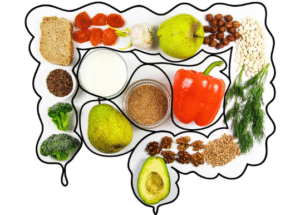Perimenopause Anxiety and How to Treat It
Perimenopause Anxiety and How to Manage It
Understanding Perimenopause and Its Effects on Mental Health
Perimenopause marks the transition period before menopause when the menstrual cycle begins to change and become irregular. This phase can last anywhere from a few months to several years. While some individuals may experience physical symptoms such as hot flashes and sleep disturbances, others may also encounter emotional challenges, including heightened anxiety. This article explores the causes of perimenopausal anxiety and effective ways to manage it.
Key Symptoms of Perimenopause
While each person’s experience of perimenopause is unique, common symptoms include:
-
Hot flashes
-
Sleep disturbances like insomnia
-
Vaginal dryness or irritation
-
Painful urination
-
Symptoms of depression and anxiety
-
Headaches
-
Changes in libido
-
Difficulty with concentration or memory
Understanding Premenopause, Perimenopause, and Menopause
Premenopause, perimenopause, and menopause all describe different stages of the reproductive transition. Perimenopause is the phase leading up to menopause, typically lasting 3-4 years, and is characterized by hormonal fluctuations, irregular periods, and other symptoms. Menopause occurs when menstruation has stopped for 12 consecutive months, marking the end of this transition.
What Causes Anxiety During Perimenopause?
Anxiety during perimenopause can result from a variety of factors. One of the most significant contributors is hormonal changes, especially the decline in estrogen and progesterone levels. These hormonal shifts can affect mood regulation, leading to feelings of anxiety. In addition to hormonal changes, other perimenopausal symptoms, such as hot flashes and sleep disturbances, can further exacerbate anxiety. Moreover, external life stressors, such as aging or midlife concerns, can also contribute to the emotional challenges of this phase.
Why Is Anxiety Worse in the Morning?
Anxiety symptoms may feel more intense in the morning due to higher levels of cortisol, the body’s primary stress hormone. Cortisol levels typically peak in the first few hours after waking, which may amplify feelings of stress and anxiety.
Potential Triggers for Perimenopausal Anxiety
Several factors can increase the likelihood of experiencing anxiety during perimenopause, including:
-
High stress levels from daily life
-
Severe or persistent hot flashes and sleep disruptions
-
Financial stress or health concerns
-
Previous anxiety or depressive episodes
How Hormonal Changes Affect Perimenopausal Anxiety
Studies suggest that individuals with higher levels of anxiety before perimenopause may experience more severe anxiety during the transition. However, those who previously had lower levels of anxiety might be more susceptible to anxiety during or after perimenopause.
Managing Perimenopausal Anxiety
Several treatment options are available for managing anxiety during perimenopause:
-
Antidepressants: Medications that affect serotonin levels can help manage anxiety, depressive symptoms, and sleep disturbances.
-
Psychotherapy: Talking therapies can be highly effective for managing anxiety during perimenopause.
-
Cognitive Behavioral Therapy (CBT): CBT not only addresses anxiety but may also help with managing hot flashes.
-
Mind-body Techniques: Practices like meditation, yoga, and physical activity can help manage stress and improve overall well-being.
-
Hormone Replacement Therapy (HRT): While primarily used to address physical symptoms, HRT may also alleviate anxiety by stabilizing hormonal levels.
What Are Mind-Body Techniques?
Mind-body techniques are designed to strengthen the connection between mental and physical health. Examples include:
-
Meditation: A calming practice that can help reduce stress and improve focus.
-
Biofeedback: A technique to control body functions such as heart rate and blood pressure.
-
Laughter Yoga: Combining laughter with yoga and breathing exercises to promote relaxation.
-
Hypnotherapy: A therapeutic approach that uses hypnosis to manage stress and anxiety.
Can You Prevent Perimenopausal Anxiety?
While it is difficult to prevent perimenopausal anxiety due to the many factors at play, individuals can prepare by learning stress-reducing techniques and maintaining good overall health. Regular exercise, a balanced diet, and establishing coping strategies can help ease the transition and reduce anxiety symptoms.
When to Seek Medical Help for Anxiety
It’s important to consult a healthcare provider if anxiety begins to interfere with your daily life or if you experience panic attacks. A medical professional can assess your symptoms, recommend appropriate treatments, and guide you through the management of perimenopausal anxiety.
How to Recognize a Panic Attack
Panic attacks can occur suddenly and may include symptoms such as:
-
Shortness of breath
-
Rapid heart rate
-
Intense fear or the feeling of impending doom
If you experience your first panic attack, it’s important to seek medical advice to rule out any underlying health conditions.
Conclusion
Perimenopausal anxiety is a common but manageable symptom of the transition to menopause. It is primarily caused by hormonal fluctuations but can also be influenced by external stressors. Effective treatment options include therapy, medication, and mind-body practices. Although anxiety cannot always be prevented, preparing for the onset of symptoms and seeking support can help individuals navigate this transitional phase with greater ease.
FAQs
-
How can I support someone experiencing perimenopausal anxiety? The best way to support someone is by listening, offering empathy, and encouraging them to seek professional help if needed. Be patient and understanding.
-
When does menopause typically begin? Menopause usually begins between the ages of 45 and 55, when a person’s menstrual periods have ceased for 12 consecutive months.
-
How long does perimenopause last? Perimenopause can last anywhere from a few months to several years, typically around 3-4 years.
-
What happens during menopause? During menopause, a person’s menstrual periods stop completely, and they experience a significant drop in hormone levels, leading to symptoms like hot flashes and vaginal dryness.









